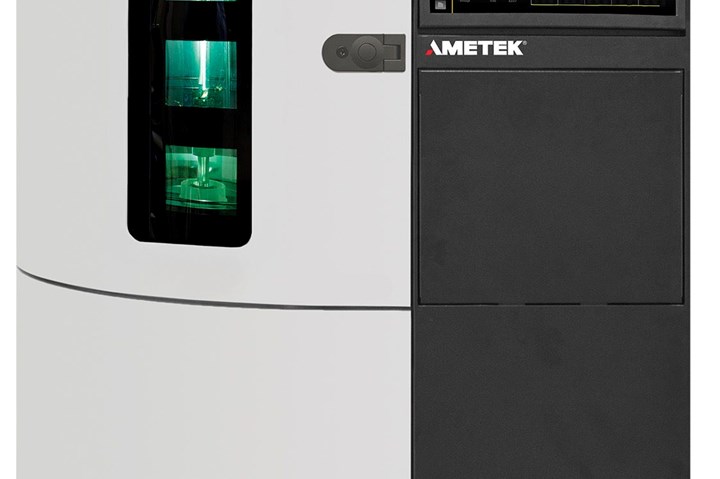Upgrade to Accelerated Artificial and Natural Weathering Testing
NPE 2024: Atlas’ S³T system is designed for the company’s Weather-Ometer Ci4400 and Ci5000 instruments
Share

The latest advancement from leading player in accelerated artificial and natural weathering testing Atlas, a division of Ametek, is said to be the first time a system makes it possible to continuously measure the specific surface temperature of individual samples during live testing. The new Atlas S³T is designed for the company’s flagship Weather-Ometer Ci4400 and Ci5000 instruments. At the core of the S³T system is an integrated, contactless IR pyrometer, which is said to accurately and precisely measure and assign the surface temperature of each specimen, and can operate continuously during the complete exposure. The system enables:
• Better reproduction of natural conditions, such as heat uptake and color distribution
• Better control of test parameters to avoid overheating of specimens
• Continuous tracing of the specific sample temperature, enabling the immediate detection of property changes, such as darkening, without disruption of the test
• Investigation of specific sample characteristics, such as activation energies of photochemical degradation reactions, for cool pigments, IR-reflective coatings, and heat and light stabilizers.
Related Content
-
Try This Alternate Method for Heating Your Torque Rheometer
Rheometers are generally not on all the time. And most users have found that the first test run in the instrument after heating up is not very reliable and is usually discarded. Try this method instead.
-
Updated Interactive Tool for Predicting Multilayer Film Performance
NPE 2024: NOVA Chemicals presents the latest enhancements to its Bonfire Multilayer Property Predictor and new Syndigo rPE portfolio
-
Tracing the History of Polymeric Materials -- Part 30: Polyurethane
In the world of polymers, polyurethane chemistry is probably the most versatile. This a resulted in a wide range of products made from these materials and given the industry the flexibility to respond to the progressive march of regulatory concerns.










